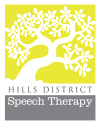
The average Australian swallows 500-700 times a day. That’s around three times an hour during sleep, once per minute while awake and even more during meals.
Most Australians are unaware how difficulty with swallowing can be frightening and life threatening. It’s why on Wednesday 16 March 2022, Hills District Speech Therapy is campaigning to promote Swallowing Awareness Day.
Swallowing Awareness Day 2022 is an opportunity to bring attention to swallowing disorders and to connect people with speech pathologists, the professionals who can help. Speech Pathologists assess and treat people with Dysphagia (difficulty swallowing) – pronounced ‘dis-fay-juh’.
The theme for Swallowing Awareness Day in 2022 is: ‘Dysphagia. A difficult diagnosis to swallow!’
Around 15-30 per cent of people aged 65+ living in the community have a swallowing difficulty, with that figure rising to over 50 per cent for older Australians living in a nursing home. And after falls, choking is the second biggest killer of nursing home residents.
It is estimated around 1 million Australians have difficulty with swallowing. Swallowing disorders remain largely invisible, poorly understood by the general community, and rarely addressed in government policy.
Swallowing problems can mean food, drinks or saliva gets into the lungs (aspiration) and this can cause lung infections (pneumonia). Severe swallowing complications can lead to death, while other swallowing complications can lead to poor nutrition, dehydration, health complications, and social isolation.
The cost to affected individuals is measured in dollars through added health costs, limitations to their participation in the wider society, and in negative impacts on their social and emotional wellbeing. The cost to the wider community includes increased costs through longer hospital stay.
Australians with undiagnosed difficulties are frequently referred to other health practitioners — often for expensive and invasive investigations — when a speech pathologist could readily manage the problem.
A swallowing problem can occur at any stage of life. Swallowing is a skill developed from infancy.
Babies born prematurely or children with abnormalities with the structure of their head, neck and face, such as cleft lip or palate can have difficulty feeding. Both children and adults with developmental disabilities such as Down Syndrome, Autism and Cerebral Palsy can also require support with mealtime management.
Additionally, almost half of everyone who has had a stroke will have a swallowing problem. Sixty-nine per cent of people with Parkinson’s disease will have swallowing difficulties, as will 25 per cent of patients with Multiple Sclerosis.
Swallowing Awareness Day is an opportunity for all of us to learn more about swallowing difficulties and how they impact on the lives of our friends, neighbours and our wider community.
As speech pathologists, we are the professionals who assess and manage dysphagia.
Further information about dysphagia is available at https://hdspeechtherapy.com.au/swallowing-difficulties/
If you think you or your loved one may benefit from a swallowing assessment, you can submit an enquiry via our website or calling 9054 1996 or search for additional Speech Therapy providers at https://www.speechpathologyaustralia.org.au.
If your concerns are urgent or relating to an emergency, please contact your local hospital or 000.
Speech Pathology Australia is the national peak body representing more than 12,500 speech pathologists. The Association supports and regulates the ethical, clinical and professional standards of its members, as well as lobbying and advocating for access to services that benefit people with communication and swallowing difficulties.


